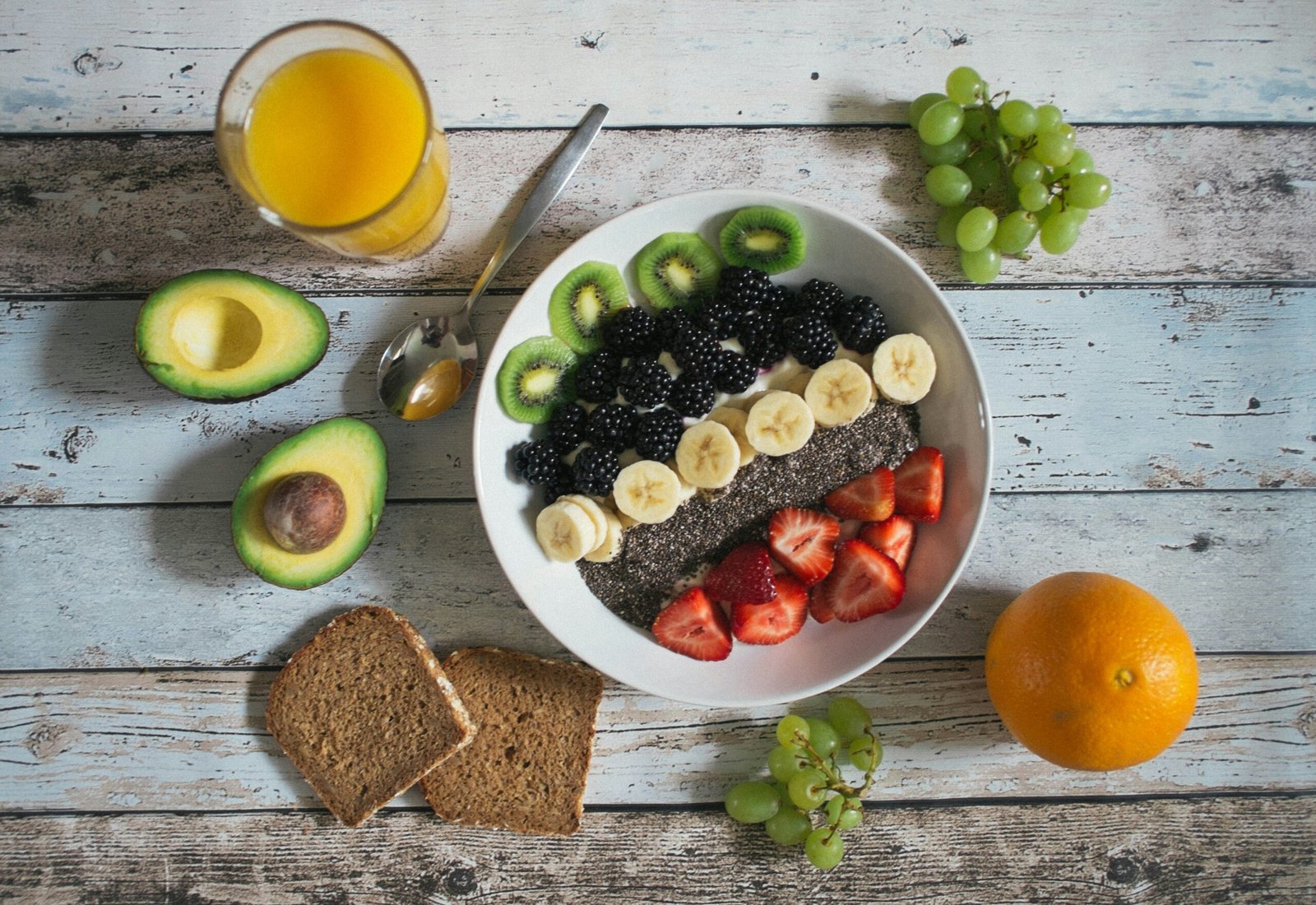
The Importance of a Healthy Lifestyle
Living a healthy lifestyle is more than just a trend; it is a way of life that can have a profound impact on your overall well-being. When you prioritize your health, you are taking proactive steps to ensure that you feel your best physically, mentally, and emotionally. From maintaining a balanced diet to engaging in regular exercise, there are various aspects to consider when it comes to mastering the art of a healthy lifestyle.
One of the key components of a healthy lifestyle is maintaining a balanced diet. This means consuming a variety of nutrient-rich foods that provide your body with the necessary vitamins, minerals, and antioxidants it needs to function optimally. A balanced diet includes plenty of fruits and vegetables, whole grains, lean proteins, and healthy fats. By fueling your body with these wholesome foods, you can boost your immune system, improve your digestion, and support your overall health.
In addition to a balanced diet, regular exercise is another crucial aspect of a healthy lifestyle. Engaging in physical activity not only helps you maintain a healthy weight but also improves your cardiovascular health, strengthens your muscles and bones, and enhances your mood. Whether it’s going for a jog, attending a fitness class, or simply taking a walk in nature, finding an exercise routine that you enjoy and can stick to is essential for long-term health.
Furthermore, prioritizing mental and emotional well-being is equally important in maintaining a healthy lifestyle. Stress management techniques such as meditation, deep breathing exercises, and engaging in hobbies can help reduce stress levels and promote a sense of calm and relaxation. Taking time for self-care activities, such as getting enough sleep, practicing mindfulness, and nurturing meaningful relationships, can also contribute to improved mental and emotional health.
Another aspect of a healthy lifestyle is avoiding harmful habits such as smoking and excessive alcohol consumption. These habits can have detrimental effects on your health, increasing the risk of various diseases and compromising your overall well-being. By making the choice to abstain from these harmful substances, you are taking a significant step towards a healthier lifestyle.
In conclusion, living a healthy lifestyle encompasses various aspects, including maintaining a balanced diet, engaging in regular exercise, prioritizing mental and emotional well-being, and avoiding harmful habits. By incorporating these practices into your daily life, you can experience the numerous benefits of a healthy lifestyle, such as increased energy levels, improved mood, and reduced risk of chronic diseases. Remember, making small, sustainable changes over time is key to achieving long-term success in your journey towards a healthier you.
One way to nourish your body with nutritious foods is to focus on incorporating a variety of fruits and vegetables into your diet. These colorful foods are packed with essential vitamins, minerals, and antioxidants that can support your immune system and promote overall health. Aim to include a variety of fruits and vegetables in your meals and snacks, choosing different colors to ensure you’re getting a wide range of nutrients.
In addition to fruits and vegetables, whole grains are another important component of a healthy diet. Whole grains, such as brown rice, quinoa, and whole wheat bread, are rich in fiber, which can help regulate digestion and promote feelings of fullness. They also provide important nutrients like B vitamins and minerals.
When it comes to protein, opt for lean sources such as skinless poultry, fish, beans, and tofu. These foods are lower in saturated fat and can provide essential amino acids that your body needs for cell repair and growth. If you’re vegetarian or vegan, make sure to include a variety of plant-based protein sources, such as legumes, nuts, and seeds.
Healthy fats are also an important part of a balanced diet. Include sources of healthy fats, such as avocados, nuts, seeds, and olive oil, in your meals to support brain health, reduce inflammation, and promote heart health. However, it’s important to consume these fats in moderation, as they are high in calories.
When making dietary choices, it’s also essential to listen to your body and eat mindfully. This means paying attention to your hunger and fullness cues, and choosing foods that make you feel good both physically and mentally. It’s okay to indulge in your favorite treats occasionally, but try to make the majority of your food choices nutrient-dense to support your overall health.
Remember, a healthy lifestyle is not about restriction or deprivation. It’s about finding a balance that works for you and nourishing your body with the foods it needs to thrive.
2. Staying Active and Engaging in Regular Exercise
Physical activity is another crucial aspect of a healthy lifestyle. Regular exercise can help improve cardiovascular health, strengthen muscles and bones, enhance flexibility, and boost mood and mental well-being. It can also help manage weight, reduce the risk of chronic diseases, and improve overall quality of life.
Find activities that you enjoy and make them a regular part of your routine. Whether it’s going for a walk, practicing yoga, swimming, dancing, or playing a sport, the key is to stay active and engage in activities that get your body moving. Aim for at least 150 minutes of moderate-intensity aerobic activity or 75 minutes of vigorous-intensity aerobic activity per week, along with muscle-strengthening activities on two or more days.
Remember that exercise doesn’t have to be a chore. It can be a fun and enjoyable way to take care of your body and improve your overall well-being. Get creative and explore different types of physical activity to find what works best for you.
Additionally, incorporating regular exercise into your daily routine can have numerous benefits beyond just physical health. Engaging in physical activity can help reduce stress levels, improve cognitive function, and enhance sleep quality. Exercise releases endorphins, which are natural chemicals in the body that act as mood boosters and can help combat feelings of anxiety and depression.
When it comes to choosing the right type of exercise, it’s important to consider your personal preferences and fitness goals. Some people thrive in group fitness classes, while others prefer solo activities like running or cycling. It’s also important to vary your workouts to prevent boredom and ensure that you are targeting different muscle groups.
Remember to listen to your body and start slowly if you’re new to exercise or returning after a long break. Gradually increase the intensity and duration of your workouts as your fitness level improves. It’s also important to prioritize rest and recovery to prevent injury and allow your body to repair and rebuild.
Incorporating physical activity into your daily routine doesn’t have to be complicated. Take the stairs instead of the elevator, walk or bike to work if possible, or schedule regular breaks throughout the day to stretch and move your body. Every little bit helps, and even small bursts of activity can have a positive impact on your health.
3. Prioritizing Mental and Emotional Well-being
While physical health is important, it is equally essential to prioritize your mental and emotional well-being. Stress, anxiety, and negative emotions can take a toll on your overall health, so it is crucial to find healthy ways to manage and cope with them.
One effective way to prioritize your mental and emotional well-being is by practicing self-care activities. Self-care is all about taking intentional actions to nurture and care for yourself. It involves engaging in activities that help you relax, recharge, and find balance in your life.
There are various self-care activities that you can incorporate into your daily routine. One popular practice is mindfulness or meditation. Mindfulness involves being fully present in the moment, paying attention to your thoughts, feelings, and sensations without judgment. It can help reduce stress, improve focus, and enhance overall well-being.
Engaging in hobbies or activities that bring you joy is another important aspect of self-care. Whether it’s painting, playing a musical instrument, gardening, or cooking, finding activities that you enjoy can provide a sense of fulfillment and happiness. These activities can serve as a form of creative expression and a way to unwind from the demands of daily life.
Spending time in nature is also a powerful way to prioritize your mental and emotional well-being. Research has shown that being in nature can reduce stress, improve mood, and increase feelings of well-being. Whether it’s going for a hike, taking a walk in the park, or simply sitting in your backyard, connecting with nature can have a profound impact on your mental health.
Furthermore, nurturing your relationships and connecting with loved ones is vital for your emotional well-being. Spending quality time with family and friends, engaging in meaningful conversations, and expressing your feelings can provide a sense of belonging and support. Building strong social connections can help reduce feelings of loneliness and isolation, and contribute to overall happiness and well-being.
In addition to self-care activities, prioritizing sleep is crucial for both physical and mental health. Establishing a regular sleep routine and ensuring you get enough quality sleep can improve your mood, enhance cognitive function, and boost your immune system. Lack of sleep can lead to increased stress, irritability, and difficulty in managing emotions. Therefore, it is important to create a sleep-friendly environment, practice good sleep hygiene, and make sleep a priority in your daily life.
However, if you find yourself struggling with persistent feelings of sadness, anxiety, or stress, seeking support from a mental health professional can be beneficial. They can provide guidance, support, and therapeutic interventions to help you navigate through challenging emotions and develop healthy coping mechanisms. Remember, taking care of your mental and emotional well-being is just as important as taking care of your physical health.


